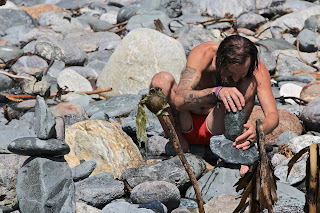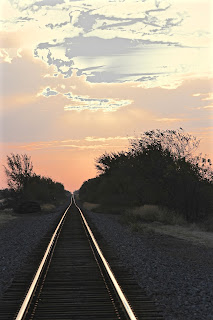It’s strange how a word or a random coincidence can trip memory’s trigger. One’s mental plate is only so big and when it’s full, everything else gets put in a folder and filed away somewhere. Then something shakes loose and comes to the top like a bubble rising and it leaves me standing on top of the world.
In 1972 I lived with my family on the west slope of Colorado. My little brother Wes lived with his family in south central Missouri. We were both teachers and it was summer. He was working toward a commercial pilot’s license and needed as many hours in the air as he could manage. His father in law was a commercial pilot and bought a Cessna 152 for him to fly, accumulate hours in his log book. The 152 is a two place, high wing plane with tricycle landing gear, designed as a student-trainer for low altitudes. We hatched a plan. They would bring only a change of clothes in a grocery sack and their two girls, 6 & 2 and fly from Missouri to Pueblo, Colorado, on the east slope. Heavily loaded, the little 152 didn’t have enough power to clear the mountains in the summer heat so I would drive over, pick them up, drive back . We would reverse the shuttle service when it was time for them to go home.
I had a 1953 Willys Jeep station wagon that was powered by a Chevy V8, plenty of room for everyone. On our side we had 3 boys, 5, 1 & 1 (twins). It was a great vacation. One day in particular stands out. We packed for a picnic, put a small play pen in the back, loaded kids and drove 40 minutes to Ouray, Colorado, gateway to the San Juan Mountains. We were headed to a high meadow, west and several thousand feet vertical from Ouray. The first few miles were carved out of solid rock. Ore trucks from the Camp Bird mine drove that part regularly. After that it was a 4 WD two-track with switch-backs and steep grades. Slow going, the terrane opened up into an open basin, surrounded by high peaks. Yankee Boy Basin was a popular destination for tourists. Heavily mined in the late 1800’s, old portals with tailing dumps dotted every hillside, gully and outcropping. Wild flowers were everywhere, blue columbine, red and yellow Indian paintbrush, where springs bubbled up and spilled down everywhere. We stopped frequently, the kids played in the meadow and we took our lunch there.
Rather than calling it a day we decided to take the road up the south mountainside to a smaller basin, higher elevation, Governor Basin. Above Governor Basin, St. Sophia Ridge stretches south from Mt. Ema to Chicago Peak. Above us maybe 500 feet vertical and a quarter mile distant, the ridge was eroded, leaving columns of black rock with narrow gaps between them, known as “Sophie’s Teeth”.
We had run out of road but you can climb up to Sophie’s Teeth and look down on the town of Telluride on the other side. Wes and I left our families to entertain themselves and we set about to climb. At first it was a walk across loose, unsettled rock but the grade went steep. The loose rock gave way to boulders. We were climbing over rocks, up the steep face to the gaps between Sophie’s teeth. It took longer than we thought it would. I was better acclimated to the altitude than Wes but I had to stop often to catch my breath as well. The view was spectacular, literally on top of the world. You could see a hundred miles in 3 directions. We both felt awe and wonder, how insignificant we must be. It was time to head back.
The climb down was surprisingly difficult. It required you look carefully at each foot placement and hand hold. You had to test each move before letting go and shifting weight. An easy stretch put us out of sight from below but much closer to the jeep. When they came into view we were still above them, maybe 300 feet away. We waved and they waved back. We shouted but had no way to know if they could hear us. I had a great idea. Let’s sing them a song. Everything there made me think of the movie, “The Sound Of Music”, the mountains, the sky-so-close, the wives and little kids below.
I coached him on the lyrics, ‘The hills are alive with the sound of music, with songs they have sung, for a thousand years.’ And, we sang, actually more like screaming with a thin hint of melody. When we got to the end we started over. Thin air, screaming out the song, we soon winded and had to catch our breath. We were laughing, ‘One more time!’ “To laugh like a brook when it trips and falls over stones on its way, to sing through the night like a lark who is learning to pray.” Stop again for a gulp of air but we knew the song had to finish at the end. “My heart will be blessed with the sound of music, and I’ll sing once more.” The heard us, couldn’t make out the words but recognized the melody.
The ride home was interrupted by a stop for ice cream in Ouray. I can’t remember another outing with 9 people that nobody complained about anything, everybody slept well that night. Here it is 2019, all of the kids have grown up, moved on. I am on the cusp of turning 80. A friend in my coffee group once asked a hypothetical question, can you remember a time when you had a great experience with one of your siblings, as if it would be a difficult task. Without a thought I defaulted to Sophie’s Teeth and The Sound of Music.
I love Google Earth. As I began this journal entry I went to my computer, booted up the satellite image, zoomed in and plotted our outing that day in 1972. I clicked on the spot as best I could remember, dropped a marker for the coordinates. (37.966671 -107.779853) You can see the shadows of Sophie’s Teeth.






